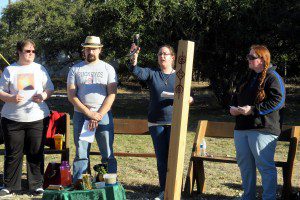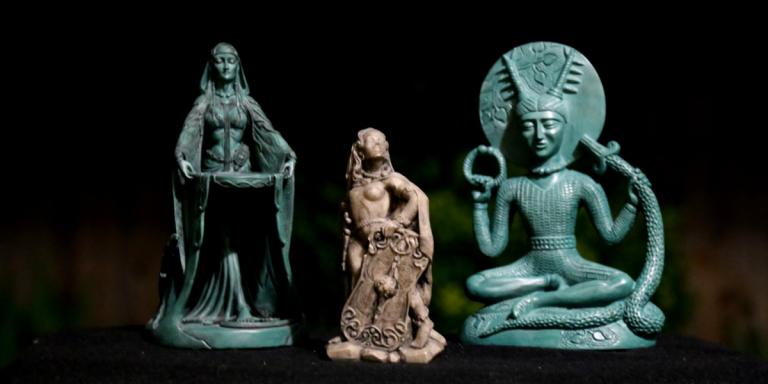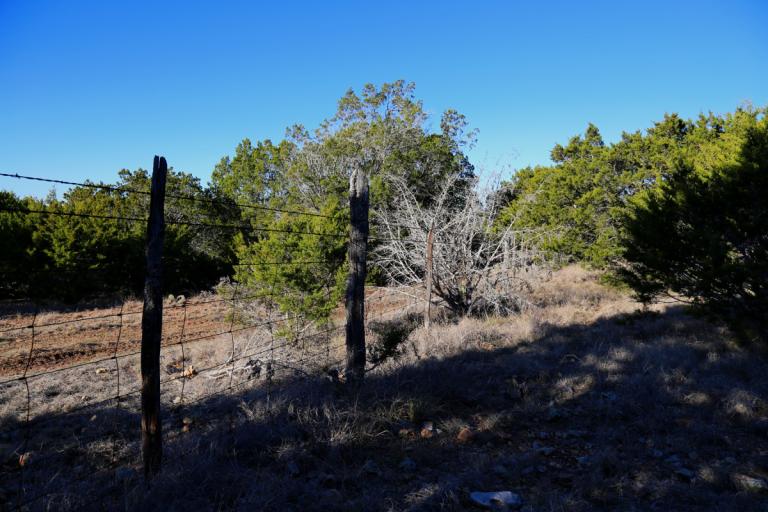The Polytheist Movement is going through some growing pains. We’re debating what polytheism is, what it does and doesn’t include, and what it means to be a polytheist. Many of us are passionate about these questions and we don’t agree on the answers. Some of our fervent (and at times, unskillful) debate has been mistaken for personal attacks… and some of it has gotten quite personal.
As someone who’s fond of order and diplomacy, this troubles me. Yet while I hope our debates will become more civil, we cannot fail to have the debates. We can’t “all just get along” if getting along means whitewashing very real differences in theology and practice. Polytheism is not and never has been one thing. If we must become two movements or three movements or ten movements in order to be authentic and effective, so be it.
I have neither the ability nor the authority to define polytheism for everyone. What I can do, though, is define polytheism as I understand it and as I practice it. This is my polytheism.
My polytheism is focused on the Gods. The Gods are individuals. They are many. They are real. They have will and agency. They act in this world, sometimes through humans but sometimes on Their own. They have great power and wisdom, but They are not omnipotent, omniscient, or omni-anything else. They sometimes take interest in humans and occasionally come to our aid, but that is not Their primary role. They have Their own desires, goals, and areas of responsibility, the same as every other living being in the universe.
In my polytheism, the Gods are first. Not just because They’re Gods, but because They’ve shown Themselves to be trustworthy and wise. Focusing on the Gods and on Their values and virtues allows me to be a part of something bigger than myself, something that will remain long after I’m gone.
My polytheism includes ancestors and spirits. I see Gods, ancestors, and spirits as qualitatively similar (though not identical) beings. So since I honor the Gods it makes sense to honor the ancestors and spirits as well. As with the Gods, they are many, real, and individual. Ancestors (of blood and of spirit) are likely to have an interest in the survival and success of their descendants – they tend to be more accessible than deities. We often have common interests with the spirits, particularly the spirits of the places where we live.
My polytheism is grounded in hospitality and reciprocity. Hospitality is rooted in being a kind, polite, and generous host. If we invite spiritual beings to join our rituals, we want to make them feel like welcome guests, not start ordering them around and demanding they give us stuff.
The world runs on reciprocity: I give so that you may give, so that I may give again. A craftsperson does a service for you – you pay them. You do a favor for a friend and you know that some day, they’ll do something for you. Giving to the Gods isn’t appeasement and it isn’t bribery. It’s demonstrating that we understand the world runs on honest exchange.
I treat all living beings with respect. I treat the Gods with reverence. The dictionary defines reverence as “a feeling of deep respect or awe.” How can you not be in awe of mighty beings who, if not immortal (though I imagine they are), are at least centuries old, who have the perspective of the ages, and who continually demonstrate virtues?
I do not debase myself – I too am a being of inherent value and worth. But whatever I am, the Gods are more, and it is good and right to remember this.
I maintain my sovereignty even before the Gods. I show the Gods great deference – my experience has shown that going along with Their requests and Their plans is generally in my best interests, and not because I fear what They’ll do if I say no. But ultimately, I am responsible for my life, and if a God asks me for something I cannot or should not give Them, then I must say no. That doesn’t mean They can’t take it anyway, because They can. But in my experience, They rarely do.
I once told a certain Battle Goddess no. At times I wonder about what experiences I’ve missed because of that decision. But what I was asked to give would have changed me into someone I’m not, and I couldn’t do that.
My polytheism is informed by my experiences of the Gods. My polytheism is not an exercise in psychology or philosophy. It’s not a historical re-enactment. It is a daily first-hand experience of Their presence in prayer, in meditation, and occasionally in direct ecstatic communion.
I don’t write much about my experiences of ecstatic communion, because I can’t. Not because it’s forbidden, but because I can’t adequately describe the experience of a deity merging Their consciousness with mine, to some small extent. I’m an engineer trained in science, and I’m highly skeptical by nature. But in those moments, I have absolutely zero doubt that the Gods are real and present.
My polytheism is open and subject to constant revision. Though I speak with confidence about what I’ve experienced, what I believe, and what I think, I know that in matters of theology there is no such thing as certainty. No matter how strong my experience or how solid my scholarship, there’s a chance I’m wrong. While I refuse to be agnostic, my integrity demands that I remain open to new information, new ideas, and new experiences.
After 23 years on this path, I’m mostly making refinements, not wholesale changes to my worldview and belief system. But the day I stop learning will be the day I die.
My polytheism is a public polytheism. While my most intimate experiences of the Gods must remain private, I am called by the Gods I serve to be a public presence of polytheism. The loudest voices in our mainstream society insist there is only one God. The second loudest voices insist there are none. Ordinary people need to see that yes, some people do worship many Gods. I do not proselytize, but I have an obligation to publicize polytheism and polytheist religions.

My polytheism is practiced in community. I do not worship the Gods only to enjoy the experience of Their presence. I want to participate in Their work, and in doing so, build a better world here and now. This requires working with other like-minded people.
Sometimes this is other polytheists. We worship together, compare our experiences, discuss the results of academic research and how we can incorporate it into our polytheisms. We write books, teach classes, sing hymns, and build temples. We do other things too, but mainly we work together to become better polytheists and to build a stronger polytheist community. We are preparing the Way of the Gods.
Sometimes this is other Pagans (my polytheism is Pagan – if yours isn’t, then you’re probably in the “other polytheists” group above). We may not see the Gods in the same way, but we can come together for things like Pantheacon, Pagan Pride Day, and to help people who wander into the Big Tent of Paganism to find the spot where they belong.
Sometimes this is other open-minded folks of any religion or no religion at all. We work together for religious freedom, to care for Nature, and to build a more just and compassionate world for all.
I cannot worship authentically alongside some of these people. I cannot recite a creed that claims there is only one God, and they cannot pour offerings to a God other than their own. But that is no reason not to work together to make our shared world a better place.
My ethics and my politics flow from my polytheism, but they are subordinate to it. I am a priest of two Gods of Nature – caring for the natural world is a religious obligation for me. I have an increasingly complicated relationship with a Goddess of Sovereignty – respecting every person, every species, and every ecosystem is a religious obligation for me. I have other relationships with other deities – embodying Their virtues and supporting their values is a religious obligation for me. Living in a quasi-democratic society, fulfilling these obligations requires me to participate in the political process.
But that does not demand one specific political approach, particularly if my understanding of history and of human nature tells me an approach is unlikely to be effective and may very well have disastrous side effects.
Further, my polytheism requires that I work and worship with those who share my commitment to the Gods and Their virtues and values, even if their political approach is vastly different from mine. There is no place for racism, misogyny, homophobia, transphobia, or any other form of prejudice or hatred in my polytheism. But if we agree on the goals but disagree on the means to achieve them, I cannot and will not exclude them from my community.
My polytheism doesn’t require bashing anyone else’s religion. I’m a polytheist. That means I think both monotheists and atheists are wrong. But I have no need to go into monotheist or atheist spaces (or into their conversations in the public square) and tell them how wrong they are. The principles of hospitality and reciprocity demand that I not do so.
I think Wiccans absolutely can be polytheists. If they’ve done a poor job articulating their polytheism, it’s because it hasn’t seemed very important to them. That’s their business. Their polytheism may not be the same as my polytheism, but it doesn’t have to be.
My polytheism requires the maintenance of healthy boundaries. The boundaries of my polytheism are low and flexible, but there is a point beyond which they must be enforced. If a monotheist or an atheist comes into polytheist space and starts telling everyone how wrong we are, I have an obligation to rebut them. If they persist, particularly if they make arguments that may be confusing to seekers and beginners, I have an obligation to show them the door.
Differing opinions within polytheism are welcome and fighting over ownership of terms is mostly unhelpful, but differences demand clarity. Inclusiveness is a worthy goal, but not if it means whitewashing significant differences in foundational beliefs and devotional practices.
What I think is a significant difference may strike someone else as trivial, and vice versa. But our unity must be an open and honest unity. If we find we cannot worship together, we can and must still work together as part of the wider community.
This is my polytheism. This is the foundation from which I practice and from which I write and speak. It is not all of my religion – we have not spoken of my Druidry or my Unitarian Universalism. We have not spoken of my early morning walks or my prayers offered four times every day. We have not spoken of a lot more than we have covered. But when I speak of polytheism, this is what I mean.
Your polytheism may be very similar to mine. Great. Your polytheism may be very different from mine. That’s great too. We don’t have to agree on everything, and we must not pretend to agree when we don’t.
We just need to be polite and remember Who we’re working for.

















